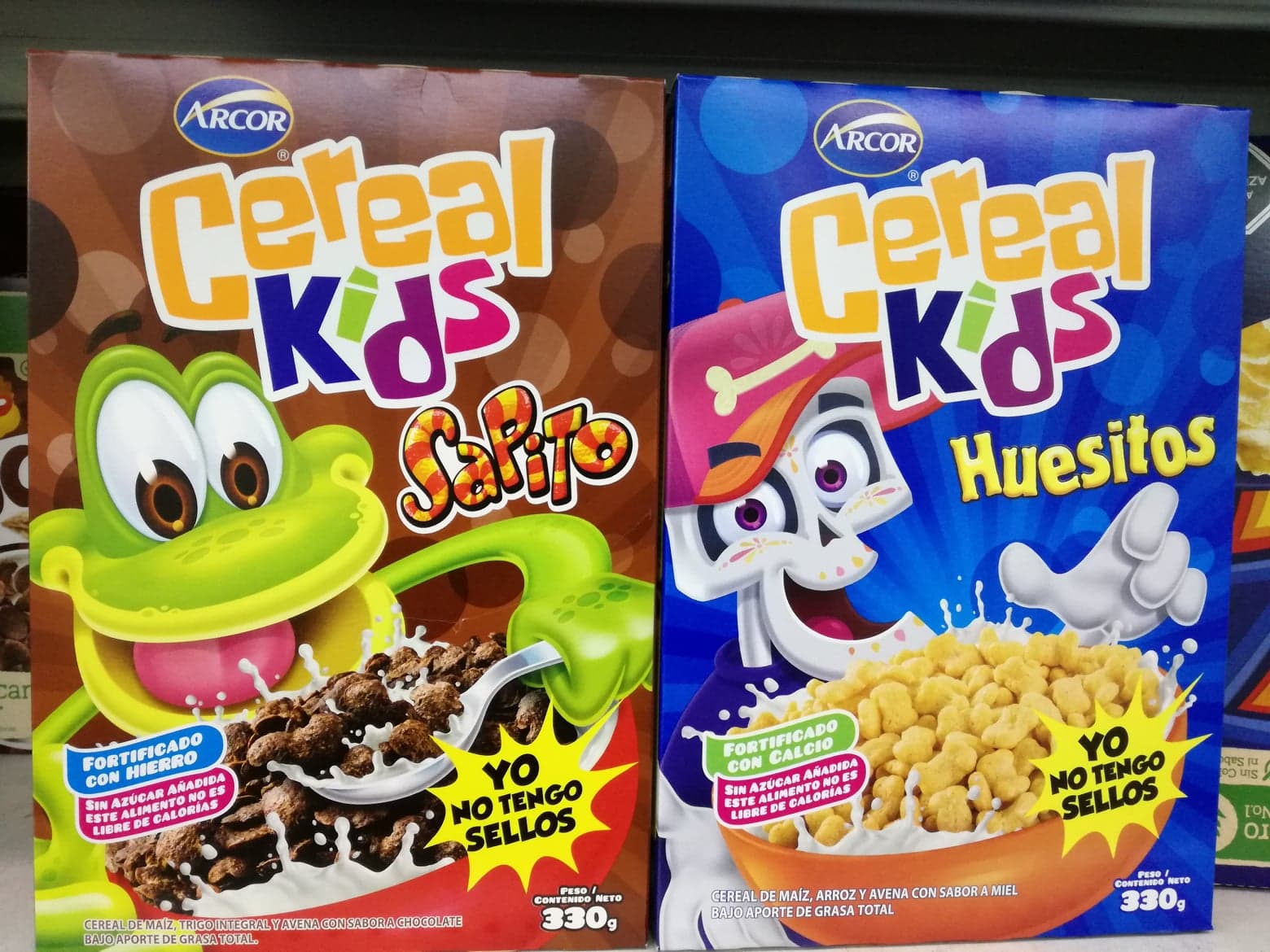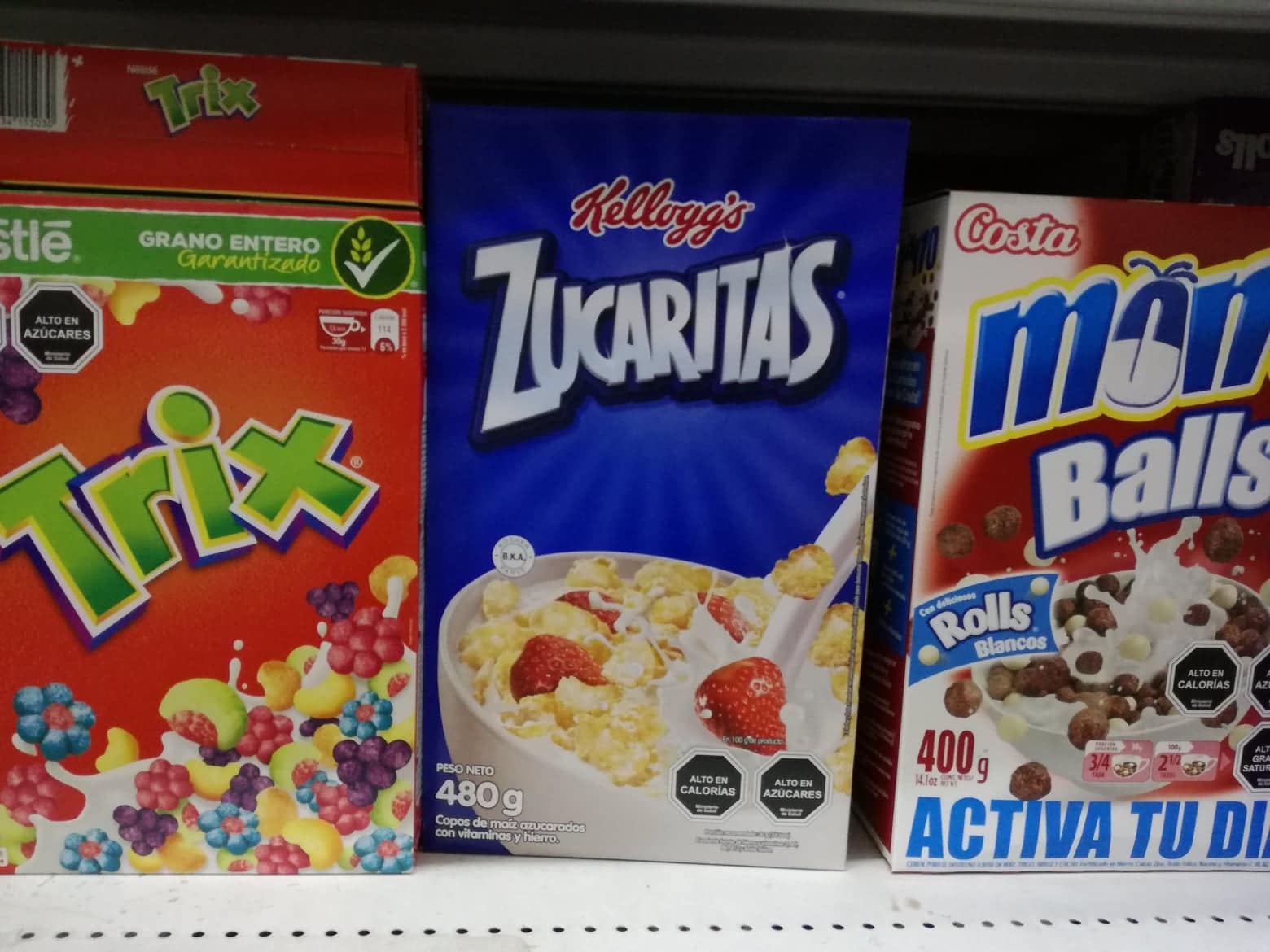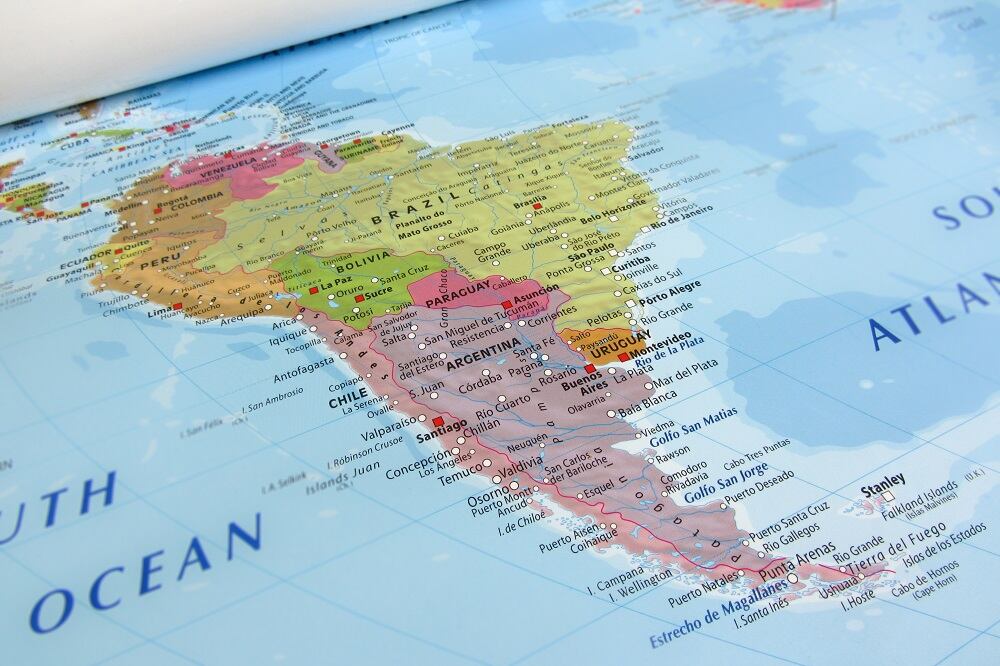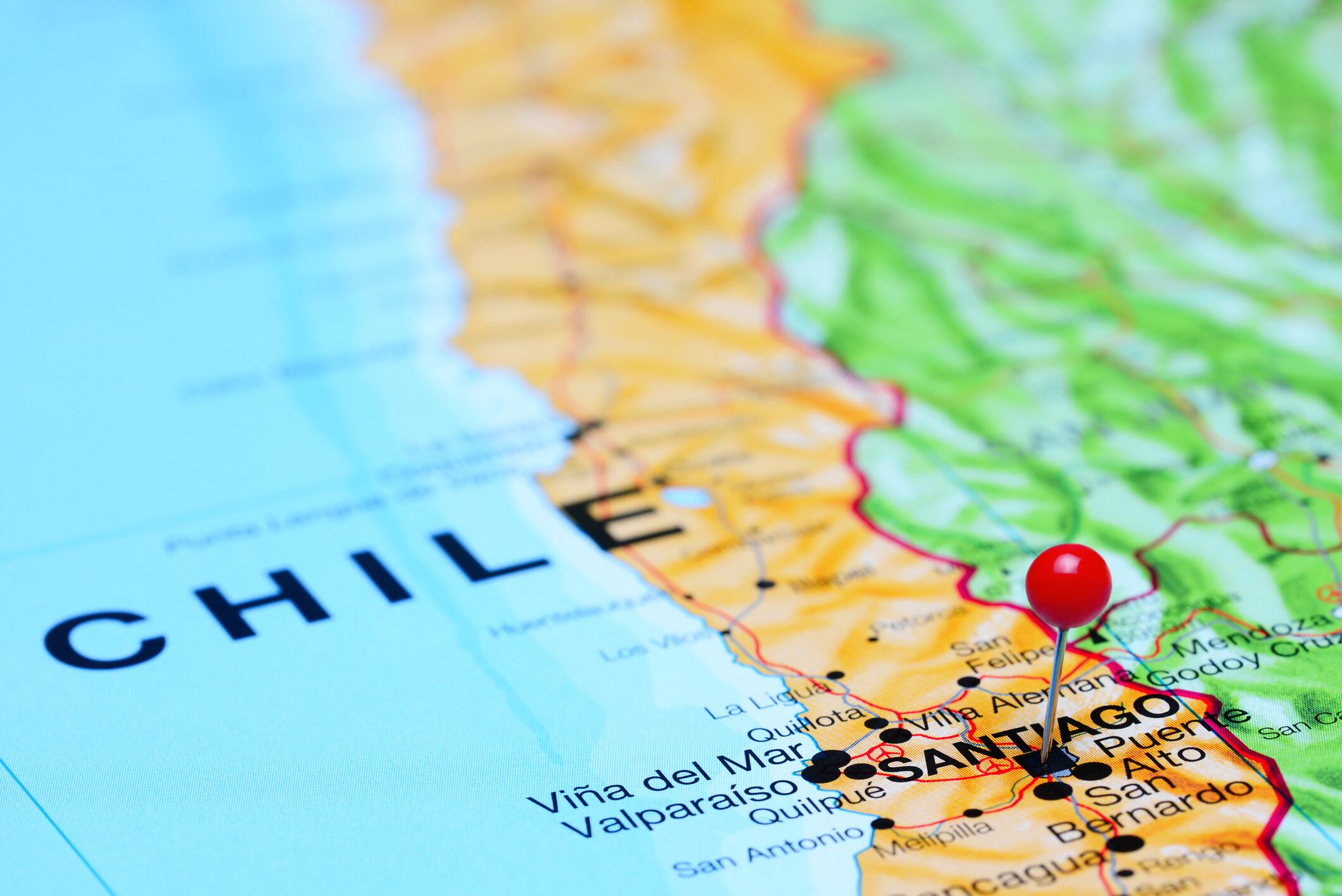Manufacturers of sugary breakfast cereals, sodas, snacks and sweets often use fun on-pack characters or free collectible toys to appeal to children. Previous research has shown that such marketing strategies can influence children’s food preferences and choices and even their taste perceptions.
Chile, which has one of the highest rates of obesity prevalence in the world - nearly one quarter (25%) of children aged six and seven are obese, according to a 2017 Mapa Nutricional report – brought in strict laws requiring manufacturers of unhealthy foods to add front-of-pack warning labels to their products.
Products that are ‘high in’ cannot be promoted or sold within schools and are restricted from marketing to children under 14 years of age, according to the regulation, which famously banished – among many other licensed or branded characters - Tony the Tiger from Kellogg’s Frosties (Zucaritas in Latin America).
Best and worst in class

For this study, the team of researchers took photographs of 168 breakfast cereals before 2016 and 153 after. They found that before the regulation, 43% of ‘high in’ cereals used child-directed strategies on their packaging. This fell to 15% after 2016.
Healthier cereals are also now making the most of their ability to use child marketing strategies. Almost one-third (30%) of cereals that are free from warning labels now use such strategies compared to just 8% before.
Arcor's Cereal Kidz products, for instance, are free from warning labels and can use cartoon characters. The products also boast 'Yo no tengo sellos' (I don't have any warning labels).
The thresholds brought in by the Ministry of Health in 2016 were 22.5 g for sugars; 6 g for saturated fats; 800 mg for sodium, and 350 kcal in energy density per 100 g of food.
“After Chile restricted junk food marketing to kids in 2016, there was a substantial decrease in the prevalence of child-directed marketing strategies on unhealthy breakfast cereals in the marketplace,” said lead author, Lindsey Smith Taillie.
“However, it is not clear whether these changes were due to companies adjusting their marketing strategies or reformulating their products to avoid the regulation,” she added.
Evidence the law is 'a promising tool'
The researchers write: “As packaging is a predominant medium through which children are exposed to food marketing, the reduction in child-directed strategies found in this study suggests that children in Chile are being less exposed to child-directed marketing of products high in calories or sugar in their food environment.”
The authors suggest that further research could look at the impact on other product categories in Chile, such as sugar-sweetened beverages. According to a 2019 report by the Pan-American Health Organization (PAHO), the per capita sugar-sweetened beverage sales in Chile are the highest worldwide.
“This is highly relevant because child-directed marketing of unhealthy food has been associated with obesity development. We therefore interpret our findings as evidence that Chile’s Food Labeling and Advertising Regulation is a promising tool for reducing children’s exposure to child-directed marketing on unhealthy packaged foods.”
Spreading around the world
According to Taillie, the results from this study are being used both across the region and globally to inform the development of new policies on child-directed junk food marketing.
Barry Popkin, distinguished professor of nutrition at Gillings School, who provided input for the study, said the Chilean efforts were part of “a very comprehensive approach to prevent obesity and noncommunicable diseases like diabetes and hypertension”.
The Chilean model has been copied like-for-like by Israel and partially copied in Peru and Uruguay, where it will come into force next year.
“A strong law has been passed in Mexico, as well, and 4-5 other major countries are in the process of adopting the Chilean approach,” added Popkin.
Source: International Journal of Environmental Research and Public Health
“Prevalence of child-directed marketing on breakfast cereal packages before and after Chile’s food marketing law: A pre-post quantitative content analysis”
Available online 4 December 2019, DOI: 10.3390/ijerph16224501
Authors: F. Mediano, L. S. Taillie et al.




